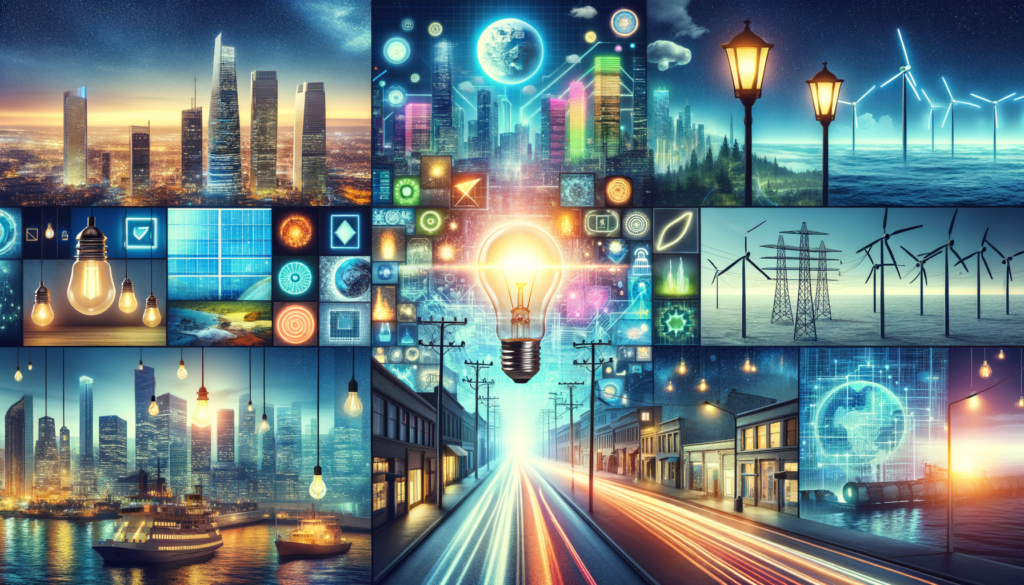The Gaming Blog

Illuminating the World: A Comprehensive Look at Light Companies
The Evolution of Light Companies
Light companies have been instrumental in shaping the modern world, providing the essential service of illumination that supports both daily life and industrial activities. Over the years, these companies have evolved significantly, transitioning from simple gas lamps to advanced LED technologies. The journey of light companies is a testament to human ingenuity and the relentless pursuit of efficiency and sustainability.
Initially, light companies focused on providing basic lighting solutions using gas and incandescent bulbs. However, with the advent of electricity, the industry experienced a revolution. This shift not only improved the quality of light but also enhanced safety and reduced costs. Today, light companies are at the forefront of innovation, offering products that are not only energy-efficient but also environmentally friendly.
Modern light companies invest heavily in research and development to create solutions that meet the diverse needs of their customers. They focus on developing smart lighting systems that can be controlled remotely, offering convenience and improved energy management. These advancements not only cater to residential needs but also serve commercial and industrial sectors, highlighting the broad impact of light companies on various aspects of life.
Energy Efficiency and Sustainability
One of the primary focuses of contemporary light companies is energy efficiency. As global awareness about environmental issues grows, there is an increasing demand for products that reduce energy consumption and minimize carbon footprints. Light companies have responded by developing LED technologies, which are significantly more efficient than traditional lighting solutions.
LED lights consume up to 80% less energy compared to incandescent bulbs and have a much longer lifespan. This not only translates to cost savings for consumers but also contributes to environmental conservation by reducing the need for frequent replacements and lowering waste. Moreover, light companies are exploring renewable energy sources, such as solar power, to further enhance the sustainability of their offerings.
Additionally, many light companies are involved in initiatives that promote recycling and responsible disposal of lighting products. These efforts are crucial in mitigating the environmental impact of lighting waste and align with global sustainability goals. By prioritizing energy efficiency and sustainability, light companies play a vital role in the global effort to combat climate change.
Technological Advancements in Lighting
Technological innovation is a driving force behind the success and evolution of light companies. The integration of smart technology into lighting systems has transformed how we interact with our environments. Smart lighting solutions offer numerous benefits, including the ability to control lighting remotely through mobile apps or voice-activated devices.
These systems enable users to adjust lighting based on their preferences or needs, enhancing comfort and convenience. For instance, smart lighting can automatically dim or brighten based on natural light availability, optimizing energy usage. This level of customization not only improves user experience but also contributes to energy savings.
Moreover, light companies are exploring the potential of the Internet of Things (IoT) to create interconnected lighting systems that communicate with other smart devices. This interconnectedness can lead to more efficient energy management and create opportunities for innovative applications in various sectors, including healthcare, where lighting can be adjusted to support patient recovery.
Impact on Urban and Industrial Environments
Light companies significantly impact urban and industrial environments by enhancing safety, productivity, and aesthetics. In urban areas, well-designed lighting systems improve visibility and safety, reducing the risk of accidents and crime. Street lighting, for example, is crucial for pedestrian and vehicular safety, and advancements in lighting technology have made it possible to maintain well-lit streets while minimizing energy consumption.
In industrial settings, proper lighting is essential for maintaining productivity and ensuring worker safety. Light companies provide solutions that cater to the specific needs of industrial environments, such as high-intensity lighting for detailed work or specialized lighting for hazardous areas. These solutions improve operational efficiency and contribute to a safer working environment.
Furthermore, light companies play a role in urban planning and development. By offering aesthetically pleasing and functional lighting designs, they contribute to the creation of vibrant and inviting spaces. This not only enhances the quality of life for residents but also attracts businesses and tourists, boosting local economies.
The Future of Light Companies
As technology continues to advance, the future of light companies looks promising. The ongoing development of smart cities presents new opportunities for light companies to innovate and expand their offerings. Smart city initiatives often include advanced lighting systems that integrate with other urban infrastructure to improve efficiency and sustainability.
Additionally, the rise of artificial intelligence (AI) and machine learning offers potential for further advancements in lighting technology. AI can be used to analyze data from lighting systems to optimize performance and predict maintenance needs, improving reliability and reducing costs.
Light companies are also exploring the potential of human-centric lighting, which focuses on the impact of light on human health and well-being. By developing lighting solutions that mimic natural light patterns, these companies aim to enhance mood, productivity, and overall health. This approach could revolutionize lighting in various settings, from homes and offices to healthcare facilities.
In conclusion, light companies continue to be a vital part of modern society, driving innovation and sustainability. As they adapt to new challenges and opportunities, their role in shaping the future of lighting will remain significant, benefiting both individuals and communities worldwide.









